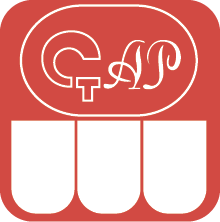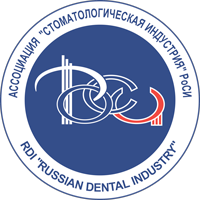Role of proand anti-inflammatory cytokines in pathogenesis of recidivating apthae in mouth cavity
Downloads
Abstract
The study examined the amount of pro- and anti-inflammatory cytokines among patients with recidivating apthae (RA) of varying severity as indicants, characterizing the level of the inborn immune reaction. In case of tunica mucosa of mouth (TMM) RA development the amount of the overwhelming majority of cytokines increases in all tested mediums. Dynamics and rate of the change of concentrations of cytokines were determined by a tested medium and severity of TMM lesion. Thus, the concentration of pro-inflammatory mediators in oral fluid increased abruptly (2-9 times) even in mild (I) RA cases, and the concentration of anti-inflammatory mediators decreased in oral fluid and slightly increased in blood serum (2,02-4,72 times). Medium (II) and severe (III) RA patients had a compensatory increase of anti-inflammatory cytokines concentration in blood serum. During the detailed consideration of the dynamics of cytokine profile it was found out that I severity level RA patients had a TNF-alpha in blood serum increase by 80, II severity level - by 136, and III - by 201. The increase of concentration of pro-inflammatory cytokines IL-1 and IL-6 amounted to 35, 63, 122 and 74, 99, 138% for I, II and III severity level correspondingly. In addition to the above I severity level RA patients had an increase of anti-inflammatory cytokines IL-4 and IL-10 concentration by 23 and 30%, and II and III severity level RA patients had a decrease by 6-9 and 44-53% correspondingly. Dynamics of cytokine profile of oral liquid had somewhat different characteristics: even I severity level RA patients had an avalanche-like increase of anti-inflammatory cytokines concentration. Thus, I severity level RA patients had an increase of TNF-alpha concentration by 191%, II and III - by 476 and 610%, and IL-1 and IL-4 - by 187%.Key words:
recidivating aphthous stomatitis, pro-inflammatory cytokines, anti-inflammatory cytokines, inborn immune reactionFor Citation
[1]
Alimova D.M., Kamilov Kh.P., Bekzhanova O.E. Role of proand anti-inflammatory cytokines in pathogenesis of recidivating apthae in mouth cavity. Clinical Dentistry (Russia). 2017; 1 (81): 20—24
References
- Вахрушина Е.В. Особенности иммунологического статуса больных рецидивирующим афтозным стоматитом. Современные технологии в экспериментальной клинической стоматологии. - Материалы II научно-практической конференции молодых ученых. - М., 2011. - 23 с.
- Вахрушина Е.В. Клинико-лабораторное обоснование иммунокорригирующей терапии больных рецидивирующим афтозным стоматитом: автореф. дис. … к.м.н. - М., 2012. - 25 с.
- Кайдашев И.П., Иленкевич В.И., Король Д.М. Очерки иммунологии слизистой оболочки полости рта. - Полтава: Полимет, 2008. - 306 с.
- Мамаев С.Н., Заглиева С.С., Заглиева С.Г. Состояние микрофлоры кишечника и система цитокинов у больных хронической сердечной недостаточностью. - Известия высших учебных заведений Северо-Кавказского региона. Проблемы гастроэнтерологии юга России. - Ростов-на-Дoну, 2007. - С. 98-99.
- Рабинович О.Ф., Рабинович И.М., Бабиченко И.И., Ковязин В.А., Вахрушина Е.В. Особенности иммуноморфологического статуса больных с рецидивирующим афтозным стоматитом. - Клиническая стоматология. - 2011; 2: 20-2.
- Рабинович О.Ф., Бабиченко И.И., Рабинович И.М., Ковязин В.А., Вахрушина Е.В. Иммуноморфология рецидивирующего афтозного стоматита. - Архив патологии. - 2012; 74 (2): 35-9.
- Спицина В.И. Иммунные нарушения и патогенетическое обоснование их коррекции у больных хроническими заболеваниями слизистой оболочки полости рта: автореф. дис. … д.м.н. - М., 2004. - 47 с.
- Цветкова А.А. Сравнительное изучение показателей цитокинов ротовой жидкости у здоровых и лиц с заболеваниями слизистой оболочки полости рта. - Сб.тр. ХХХ итоговой научной конференции молодых ученых МГМСУ. - М., 2008. - C. 362-363.
- Цветкова А.А. Иммунокорригирующая терапия заболеваний слизистой оболочки полости рта: автореф. дис. … к.м.н. - М., 2008. - 23 с.
- Albanidou-Farmaki E., Markopoulos A.K., Kalogerakou F., Antoniades D.Z. Detection, enumeration and characterization of T helper cells secreting type 1 and 2 cytokines in patients with recurrent aphthous stomatitis. - Tohoku J Exp Med. - 2007; 212 (2): 101-5.
- Boras V.V., Brailo V., Lukas J. Salivary interleukin-6 and tumor necrosis factor-alpha in patients with burning mouth syndrome. - Oral Dis. - 2006; 12 (3): 353-5.
- Koybasi S., Parlak A.H., Serin E. Recurrent aphthous stomatitis: investigation of possible etiologic factors. - Am J Otolaryngol. - 2006; 27: 4: 229-32.
- Lewkowiez N., Lewkowiez P., Banasik M. Predominance of Type I cytokines and decreased number of CD 4(+) CD 25 (+high) T regulatory cells in peripheral blood of patient with recurrent aphthous ulceration. - Immunal Lett. - 2005; 99 (1): 57-62.
- Lewkowiez N., Lewkowiez P., Dzitko K. Dysfunction of CD4(+) CD 25 (high) T regulatory cells in patients with recurrent aphthous stomatitis. - J Oral Pathol Med. - 2008; 3: 88-94.
- Sun A., Wang J.T., Chia J.S., Chiang C.P. Levamisole can modulate the serum tumor necrosis factor-alpha level in patients with recurrent aphthous ulcerations. - J Oral Pathol Med. - 2006; 35 (2): 111-6.
Downloads
Published on
March 1, 2017










